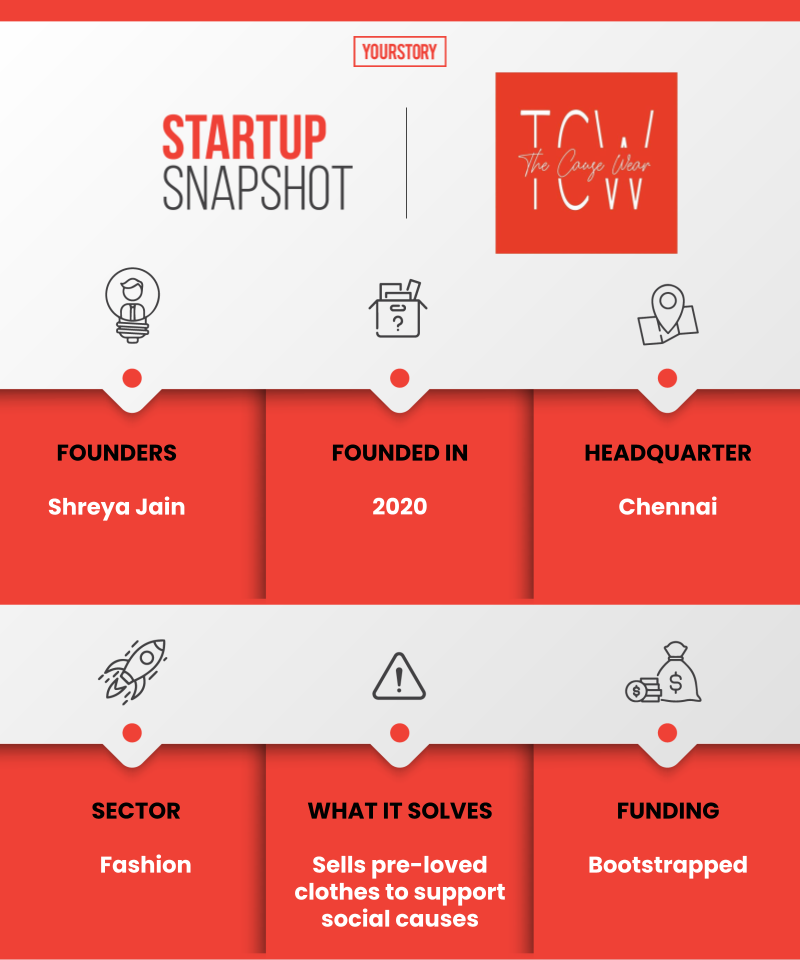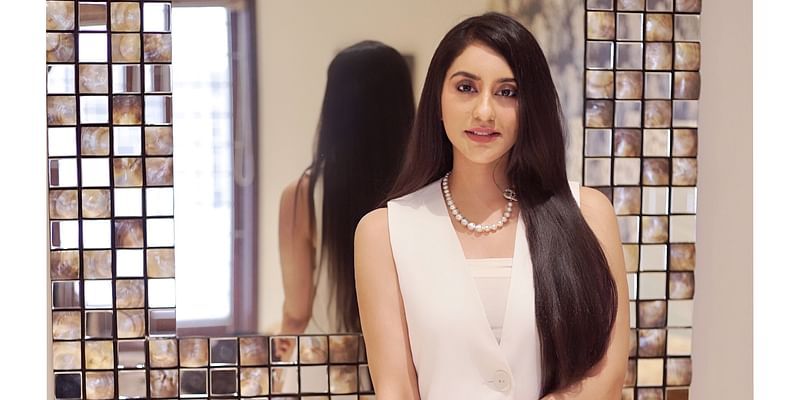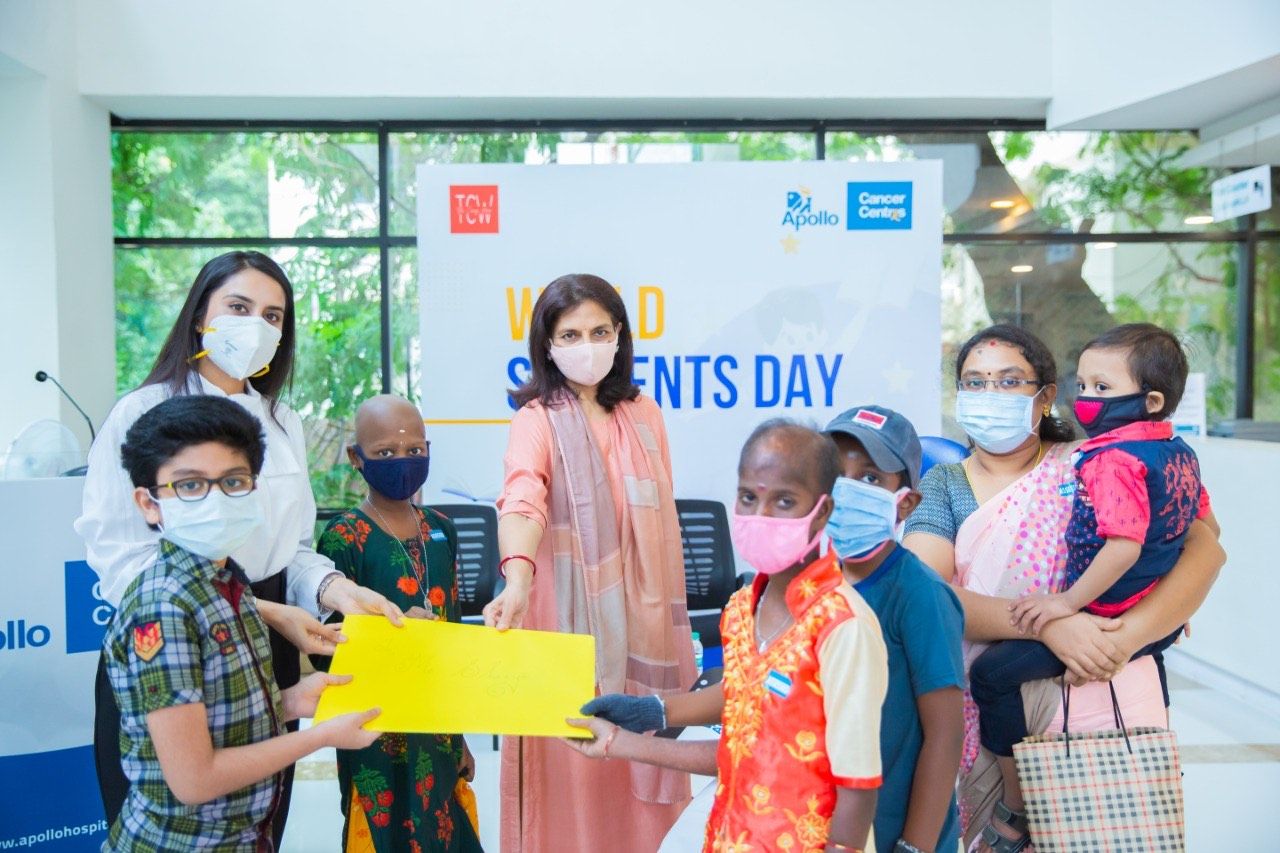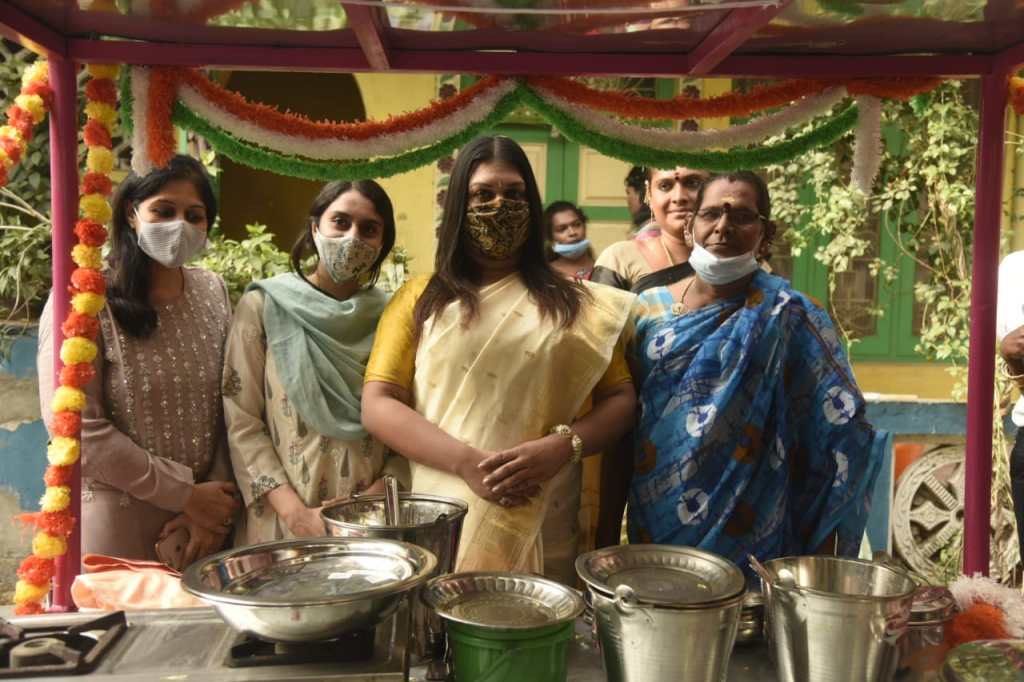Move over, fast fashion. Sustainable fashion seems to be here to stay. Especially after the COVID-19 pandemic.
From celebrities and influencers to professionals and students, everyone is conscious about where they are spending their money and the environmental impact of lifestyle decisions. The road ahead is clear: minimalism and clean fashion.
Shreya Jain, 27, aims to tap this changing mindset and combine it with her passion for fashion. She is the founder of The Cause Wear, a clothing startup melding fashion, social conscience, and sustenance.
Established in December 2019 as an Instagram page, The Cause Wear was registered in June this year. The Chennai-based startup enables customers to buy pre-loved clothes on its platform. Revenue generated from the sale of these clothes donated by people, are directed towards helping people and groups in need of immediate financial support.

Illustration courtesy: YS Design
The turning point
Shreya is a commerce graduate from Stella Maris College, Chennai. Growing up, she loved fashion and wanted to establish her own label. She did that when she turned 18 years old.
After her wedding, Shreya joined the family jewellery business and worked with the design team, curating pieces for more than two years. She enjoyed the work, but her passion for fashion kept driving her to do something in the field.
Given her family’s background in philanthropy, Shreya wanted to differentiate her work by “doing something bigger with an industry that’s commercialised and profit-driven,” she tells YourStory.
In 2018-end, Shreya saw great potential in one of her friend’s NGOs and the work it did. “But the only thing holding them back was shortage of funds and inconsistent resources,” she says.
This, coupled with the idea that Shreya had a lot of clothes piled up in her wardrobe that she did not intend on wearing, influenced her and gave birth to the idea of re-usable fashion to help the community.

Founder of The Cause Wear Shreya Jain
While one can always donate clothes to NGOs and orphanages, Shreya believes that helping people financially to buy whatever they need makes more sense.
Charity begins at home and for the first thrift store supply, Shreya turned to her own closet.
“I picked out some exclusive pieces that I seldom wore and re-sold them at events and offline spaces at reduced prices,” she says.
For the first couple of exhibitions, Shreya donated around 500 clothes from her own wardrobe. The overwhelming response she received motivated her to start her venture: The Cause Wear. Initially starting as an Instagram page, The Cause Wear is now a registered company.
Fashion with a cause
Since the last decade, fashion has been at the peak of commercialisation and capitalism. The Cause’s Wear’s aim is simple: it helps customers buy what they love, helps people sell what they do not need, and in the process pays back to communities that have either been neglected or support causes that deserve collective voices.
“We don’t just look at donating money to an NGO since it's a short-term serotonin rush. Instead, we help people and groups in need of immediate support and work to a point where they can be self-sufficient,” Shreya says.
The Cause Wear extends support to the transgender community, educational causes, to help people pay rent, and for basics such as food and clothing.
The startup also focuses on promoting, propagating, and selling only reusable fashion to support sustainability. “To us, sustenance and social conscience are two imperative pillars,” Shreya adds.

On World Student's Day, The Cause Wear partnered with Apollo Cancer Centre to gift mobile phones and laptops to aid their online education | Image Source: The Cause Wear
Business model
The Cause Wear presently functions through Instagram and Facebook.
People wanting to donate clothes can either reach out to them through social media or email them. In the first step, donors must send across images of the clothes they want to donate. Once approved, the team either collects the clothes from the customer’s doorstep or requests donors to courier them.
Once the clothes reach The Cause Wear, a quality check team does through checking for the products - buttons, stitching, stains (if any), and collar issues, and then sends them for dry cleaning. Post dry cleaning, a second round of quality check is done after which the clothes are sent for a shoot before photos are posted on social media.
Shreya decides the pricing herself and tries to keep it minimal. “The idea is not to earn profits. We want everyone to get the best in fashion and give a product a second life,” she says.
For a top or a shirt, the price ranges between Rs 200 and Rs 500, for bottoms; it goes up to Rs 700. For dresses, the cost varies from brand to brand and ranges between Rs 800 and Rs 1,000. For designer clothes, like dresses by Ritu Kumar, the cost is between Rs 2,000 and Rs 3,000.
According to the founder, The Cause Wear has more than 175-plus customers, with a retention rate of over 40 percent. The average ticket size is Rs 500. The startup has sold more than 450 outfits so far, serving customers on a ‘first come, first serve’ basis. It accepts both digital payments and bank transfers.
The Cause Wear team has four employees on its payroll, and three volunteers helping with the process.
At the end of every month, the startup sets aside some of its revenue for processes and salaries; the rest is donated either to a cause or an individual. “Our aim is to directly get in touch with the person rather than through an NGO. We want the impact to happen directly and connect the story with them,” Shreya says.
Success stories
The Cause Wear recently helped Muthuma, a 45-year old transgender woman, by financing an idli cart to help her earn her livelihood. The startup also helped Komali, a transgender woman, pay her hostel rent while she awaited a job offer. Komali left her home and family to claim her womanhood and live life on her own terms.
“We also got the opportunity to work with Grace Banu, a transgender activist, in June, helping with everyday needs,” Shreya says.

The Cause Wear helped Muthuma by financing an idli cart for her | Image Source: The Cause Wear
A large chunk of The Cause Wear’s August's sales went into helping Shubhashini, an auto driver in Chennai whose husband abandoned her, to fund her son’s education.
On October 15, which is celebrated as World Students’ Day, The Cause Wear partnered with Apollo Cancer Centre in Chennai. Proceeds from the sales were helped to gift mobile phones and laptops to students to aid their online education.
Market overview and the road ahead
A report by Statista suggests that the market value of the second-hand apparel market worldwide is valued at $5 billion. Indian thrift stores include The Salvage Story, Collections Revolved, Groovy Thriftshop, and Assortments, among others.
“The Cause Wear’s happy stories of empowerment are our USP,” Shreya says.
Since the idea of thrift stores is still nascent in India, Shreya had to face challenges initially to assure people about the products she was listing on social media. “We constantly made people aware of the sustainability factor of reusing fashion with our communication on social media,” she says.
Currently operational in Chennai, Shreya’s dream is to take The Cause Wear across the country.
Edited by Teja Lele Desai
Link : https://yourstory.com/2020/11/chennai-startup-thrift-store-fashion-social-cause-the-cause-wear
Author :- Debolina Biswas ( )
November 29, 2020 at 05:25AM
YourStory


